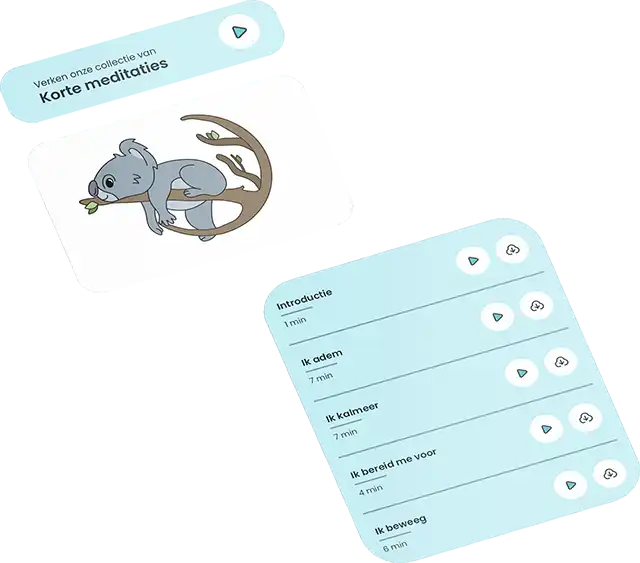Meditation: 10 minutes of mindfulness equals 44 minutes of sleep
According to a study, mindfulness meditation can be a quick and easy way to get to sleep. Researchers claim that 10 minutes of mindfulness is equivalent to 44 minutes of sleep!
Getting enough sleep is essential for health and productivity at work or otherwise. Unfortunately, it can be difficult to expect to sleep 8 hours a day, especially when you have children, a long commute to work or even staggered working hours.
A study of entrepreneurs published in the Journal of Business Venture Capital by researchers at Oregon State University (USA) reports that they observed that 10 minutes of mindfulness sleep meditation helped to ‘compensate’ for lack of sleep, as they slept a good 44 minutes more.
Mindfulness meditation
The researchers recruited 105 entrepreneurs and asked them about their level of burnout. More than 40% of those questioned said they worked an average of 50 hours or more a week and slept less than six hours a night. The researchers found that entrepreneurs who slept more or practised mindfulness with higher levels of awareness reported lower levels of burnout. In a second experiment with 329 entrepreneurs, the researchers again asked questions about mindfulness practice, fatigue and sleep. The study confirms the findings of the original study that mindfulness can combat feelings of burnout. However, it is detrimental to entrepreneurship because it impairs normal cognitive function, decision-making and even perseverance.
Unfortunately, it may not be possible to completely compensate for sleep deprivation with mindfulness practices, but they can still provide some relief. “Even 70 minutes a week, or 10 minutes a day, of mindfulness practice would have the same benefits as an extra 44 minutes of sleep a night,” he said.
Researchers agree that mindfulness is most important, and should not be overlooked, to help overcome a period of stress that interferes with sleep. So getting good quality sleep and recharging your batteries will help.
Guided Sound Meditation
Every culture in the world and at every time has developed its own practice of meditation. The product we are sharing is inspired by a technology that originated in India five thousand years ago.
Here we introduce you to mindfulness meditation.
This meditation technique is based on self-observation. It focuses on the profound interdependence between mind and body. Your mentor advises you to pay attention to your physical sensations, such as your breathing, or your emotions. During this time, the idea is not to stop and think, but to learn to detach yourself from your thoughts and observe them.
Mindfulness meditation is a kind of observation, a kind of training of the mind. It allows you to understand yourself better, to become more aware of your experiences and to understand your thought patterns so that they can develop better.
Benefits
When practised regularly, meditation helps us to develop self-control and inner peace. Little by little, it makes us aware of what life is within us: great reserves of strength, confidence, patience, compassion and love.
A typical session
Sessions begin with a few minutes of gentle movement to wake up the body and keep it alert during the meditation.
The practitioner will then invite you to make yourself comfortable.
The most important thing is to find a position that allows you to relax while maintaining your concentration.
Guided meditation lasting around thirty minutes, with one minute of silence.
Session length
60 minutes, with a short period of movement at the beginning and a time for sharing at the end for those who wish – this meditation is easy to practise and accessible to everyone.

